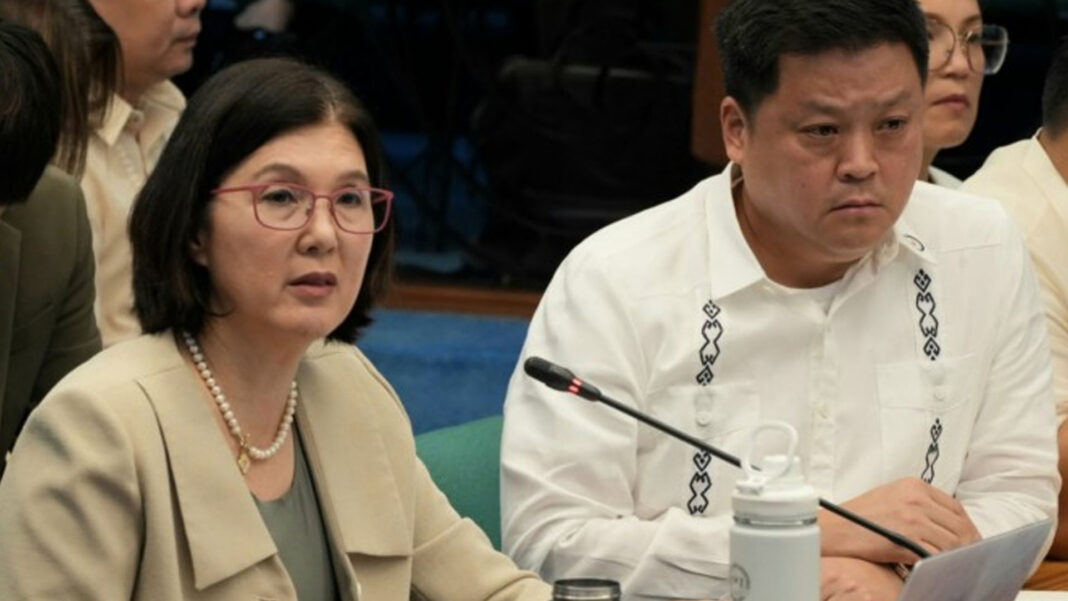The Department of Social Welfare and Development (DSWD) on Monday reported major gains in social protection programs as the Senate reviewed its proposed 2026 budget, noting higher graduation rates of Pantawid Pamilyang Pilipino Program (4Ps) beneficiaries, expanded pension support for seniors and increased funding for youth rehabilitation centers.
Sen. Pia Cayetano —sponsor of the agency’s budget— confirmed that around 1.4 million families have graduated from 4Ps between 2021 and 2025, with 1.8 million more households expected to undergo mandatory exit next year upon completing the seven-year maximum duration.
The transition to livelihood has also shown promising results.
Cayetano reported that 92 percent of Sustainable Livelihood Program (SLP) beneficiaries are former 4Ps households, demonstrating improved capacity for income generation beyond survival support.
Meanwhile, Sen. Erwin Tulfo commended the Senate for increasing funding for Bahay Pag-asa centers —from PHP75 million in the House version to PHP275 million, including PHP200 million for the construction of five new regional facilities for children in conflict with the law.
Cayetano said the Senate-approved allocation would allow 663,460 additional seniors to receive pensions, raising total beneficiaries to 4.75 million under a proposed PHP58-billion appropriation.
On the Assistance to Individuals in Crisis Situations (AICS), the Senate maintained the PHP27-billion level in the National Expenditure Program, opting not to adopt the much higher House version.
Cayetano said the decision considered both the need for stronger institutional interventions and concerns over reports of beneficiaries receiving less than the full payout.
Safeguards are being implemented to ensure correct and transparent disbursement.
She added that despite these concerns, the need for direct assistance remains significant, especially after calamities such as Typhoons Tino and Uwan.
The Senate is prepared to revisit the budget should crisis-related needs rise in 2026.
Cayetano presented the full breakdown of the DSWD’s proposed 2026 budget: Office of the Secretary – PHP224.5 billion; Council for the Welfare of Children – PHP202.6 million; Juvenile Justice and Welfare Council – PHP133 million; National Authority for Child Care – PHP747.5 million; National Commission of Senior Citizens – PHP3.6 billion; National Council on Disability Affairs – PHP187.2 million; National Anti-Poverty Commission – PHP369.4 million; Presidential Commission for the Urban Poor – PHP248.2 million; and National Commission on Indigenous Peoples – PHP1.7 billion.
“We just want to emphasize that this is the agency that stands at the forefront of our nation’s response when disasters strike, when families lose their livelihood, and when our most vulnerable citizens need urgent support,” she said.
Meanwhile, Sen. Francis Pangilinan pressed the DSWD to use the 2019 Sagip Saka Act to source part of its 2026 food program requirements directly from farmers and fisherfolk.
During the Senate deliberations, Pangilinan said the law, which he authored, empowers national government agencies and local government units to purchase agricultural and fishery products without public bidding, ensuring higher income for producers and fresher food for beneficiaries.
With Executive Orders (EO) 101 and 102 and a Government Procurement Policy Board resolution now in place, he said DSWD can make significant direct purchases.
“With the EOs and with the GPPB resolution, I am assuming that the bulk of these purchases —not necessarily 100 percent but a significant amount of your budget for pork, fish, chicken, rice— could be purchased directly from farmers and fisherfolk organizations,” Pangilinan said.
As chairperson of the Senate Committee on Agriculture, Food, and Agrarian Reform, Pangilinan requested a detailed breakdown of commodities —rice, pork, chicken, vegetables, eggs and others—procured for the agency’s food programs.
Among the programs discussed were the PHP9.41-billion supplemental feeding budget, PHP3 billion in quick response funds, around PHP160 million for the Bangsamoro Umpungan sa Nutrisyon (BangUN), and PHP1.89 billion for the Walang Gutom Program. (PNA)


